Can I travel through Massachusetts with a firearm? Navigating firearms laws can be complex, especially when traversing through states with strict regulations like Massachusetts.
Understanding the legal landscape is paramount for firearm owners or travelers passing through.
Massachusetts imposes stringent firearm possession and transportation requirements, demanding compliance with licensing, storage, and magazine capacity laws.
This journey necessitates meticulous planning and adherence to state regulations to avoid legal repercussions.
This guide will delve into the intricacies of traveling through Massachusetts with firearms, providing essential insights and tips for safely and lawfully navigating the state’s firearm laws.
Whether you’re a resident or a traveler passing through, knowing the regulations is imperative for a smooth and legally compliant journey. Stay sharp.
Understanding Massachusetts Firearm Laws
Massachusetts has some of the strictest firearm laws in the United States. These laws prioritize public safety while still allowing responsible gun ownership.
Understanding these regulations is crucial for anyone who owns or intends to own firearms in the state.
Firearm Licensing
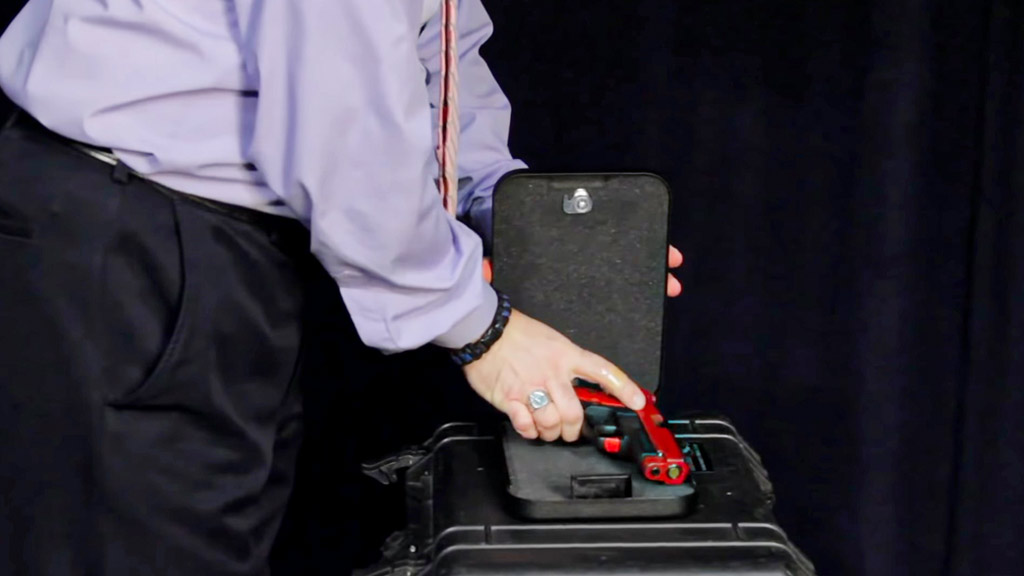
In Massachusetts, anyone who wishes to possess a firearm must obtain a Firearms Identification (FID) Card or a License to Carry (LTC) permit.
The FID Card allows for the possession of non-large capacity rifles and shotguns, while the LTC permit is required to possess handguns and large-capacity firearms.
Applicants must undergo background checks and meet specific eligibility criteria to obtain these licenses.
Assault Weapons Ban
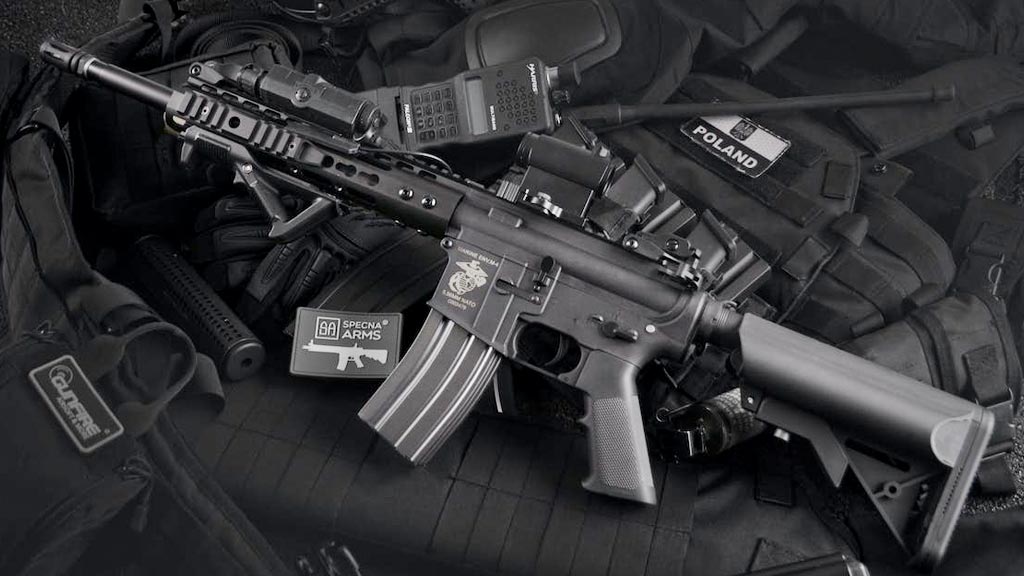
Massachusetts has a ban on the sale, transfer, and possession of assault weapons and large-capacity feeding devices (magazines capable of holding more than 10 rounds).
This ban includes specific models and features that are deemed to be characteristic of assault weapons.
Firearm Purchasing Process
When purchasing a firearm in Massachusetts, buyers must complete a Firearms Transaction Record form (FA-10) and undergo a background check through the Massachusetts Instant Record Check System (MIRCS).
Additionally, a mandatory waiting period is at least 10 days before the firearm can be transferred to the buyer.
Storage and Transportation
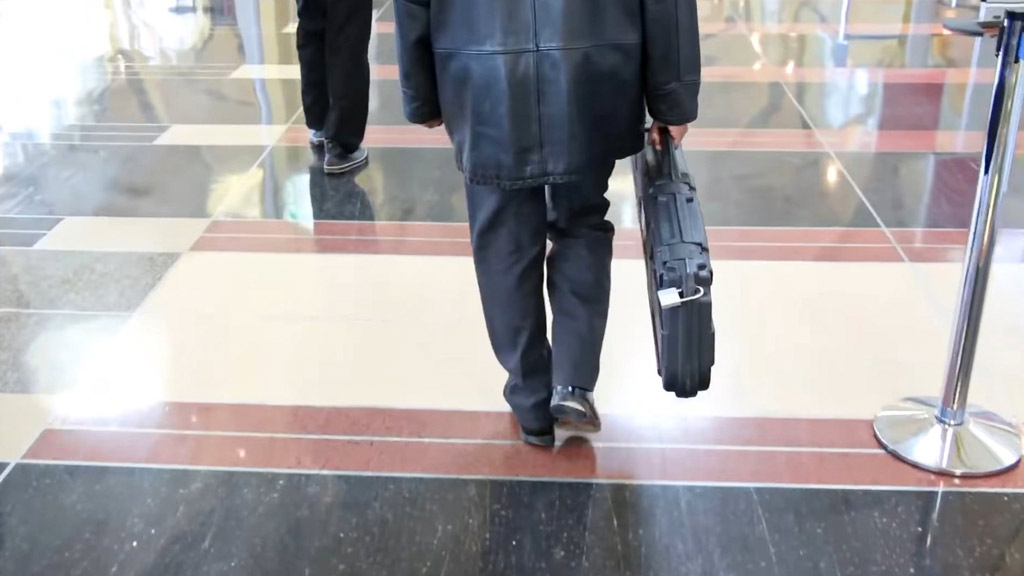
Massachusetts law requires firearms to be stored in a locked container or equipped with a tamper-resistant mechanical lock or safety device to prevent unauthorized use.
When transporting firearms, they must be unloaded and stored in a locked container or secured with a locking device.
Firearm Training Requirements
Applicants for a License to Carry permit must complete a certified firearms safety course approved by the state. This course covers firearm safety, handling, storage, and Massachusetts firearm laws.
Additionally, applicants may be required to demonstrate proficiency in firearm use and safety through a practical shooting test.
Restrictions on Ammunition
Massachusetts imposes restrictions on selling and possessing certain types of ammunition, such as hollow-point bullets and armor-piercing ammunition.
Retailers must adhere to regulations regarding the sale of ammunition, including record-keeping requirements and restrictions on sales to minors.
Understanding and adhering to Massachusetts firearm laws is essential for gun owners to avoid legal penalties and ensure the safe and responsible use of firearms within the state.
Can I Travel Through Massachusetts with a Firearm?
Traveling through Massachusetts with a firearm is subject to the state’s firearm laws, which are among the strictest in the United States.
While it is possible to travel through Massachusetts with a firearm, there are several important considerations and regulations to be aware of:
Possession Laws
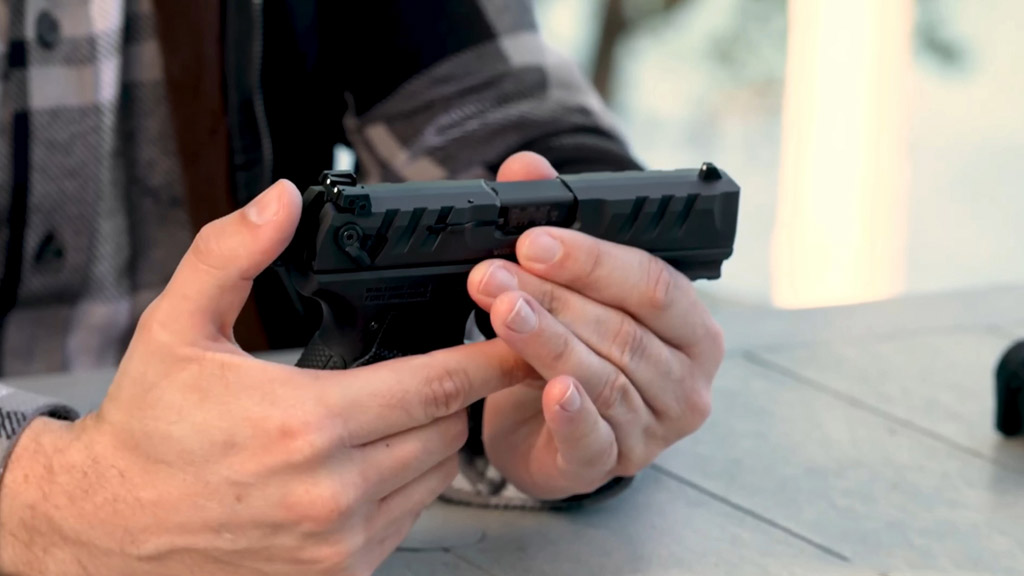
Massachusetts requires individuals to have a Firearms Identification (FID) Card or a License to Carry (LTC) permit to possess firearms within the state.
Suppose you are passing through Massachusetts and do not have a valid Massachusetts FID Card or LTC permit.
In that case, you must ensure your firearm is stored, unloaded, and locked in a container separate from any ammunition. This is known as “transporting” a gun rather than “possessing” it.
Transportation Requirements
When transporting a firearm through Massachusetts, it must be unloaded and stored in a locked container or equipped with a tamper-resistant mechanical lock or safety device to prevent unauthorized use. Ammunition should be stored separately from the firearm.
Magazine Restrictions
Massachusetts prohibits the possession of large-capacity feeding devices (magazines capable of holding more than 10 rounds) unless they were lawfully possessed on September 13, 1994, and are registered with the state.
It’s essential to ensure compliance with these restrictions if you travel through the state with firearms and magazines.
Travel Route Considerations
While federal law provides some protections for individuals traveling with firearms through states where they may not possess them, such as the Firearms Owners Protection Act (FOPA), planning your travel route carefully to avoid potential legal issues or encounters with law enforcement is crucial.
Some states, including Massachusetts, have stricter interpretations of firearm transportation laws.
Notification of Law Enforcement
Although not explicitly required by Massachusetts law, it may be advisable to notify law enforcement officers if you are stopped while transporting firearms through the state.
Cooperation and transparency can help prevent misunderstandings and ensure compliance with applicable laws.
Research and Consultation
Before traveling through Massachusetts with firearms, it’s advisable to thoroughly research the state’s firearm laws and consult with legal experts or law enforcement agencies to ensure compliance with all relevant regulations and requirements.
Traveling through Massachusetts with a firearm requires careful attention to state laws, transportation regulations, and proper firearm handling and storage practices to ensure legal compliance and personal safety.
Challenges You Might Face While Transporting Firearms Through Massachusetts
The state’s strict firearm laws can present several challenges to transporting firearms through Massachusetts. Some of the key challenges you might face include:
Licensing Requirements
Massachusetts requires individuals to have a Firearms Identification (FID) Card or a License to Carry (LTC) permit to possess firearms within the state.
If you do not have a valid Massachusetts FID Card or LTC permit, you cannot possess firearms in the state, even temporarily, while traveling through.
Transportation Regulations
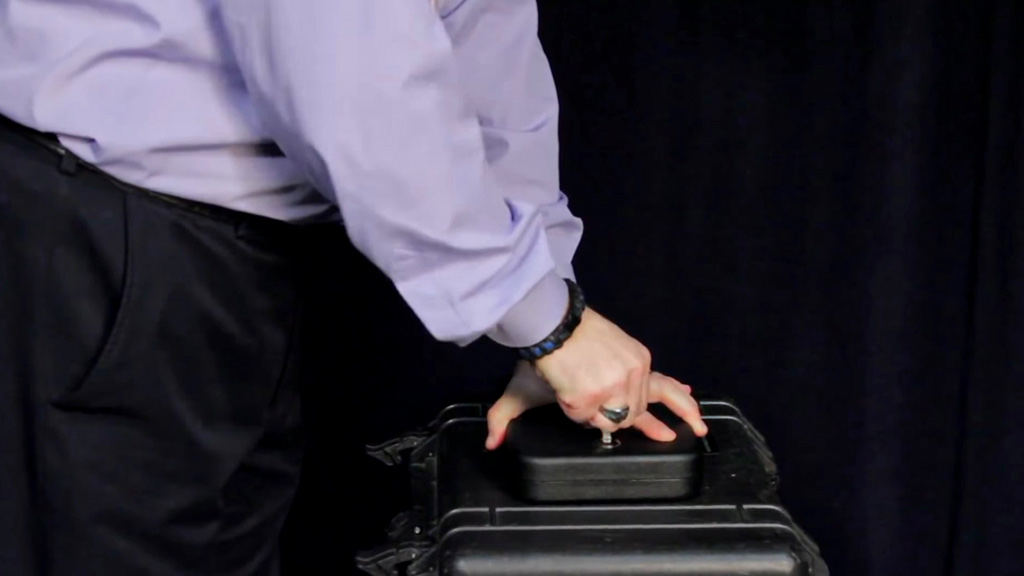
Firearms transported through Massachusetts must be unloaded and stored in a locked container or equipped with a tamper-resistant mechanical lock or safety device to prevent unauthorized use.
Ammunition should be stored separately from the firearm. Failure to comply with these transportation regulations could result in legal consequences.
Magazine Restrictions
Massachusetts prohibits the possession of large-capacity feeding devices (magazines capable of holding more than 10 rounds) unless they were lawfully possessed on September 13, 1994, and are registered with the state.
Travelers must comply with these magazine restrictions while transporting firearms through Massachusetts.
Potential Legal Encounters
Due to the strict firearm laws in Massachusetts, travelers transporting firearms through the state may encounter law enforcement officers who are vigilant about enforcing these regulations.
Being prepared to interact with law enforcement and demonstrate compliance with applicable laws and regulations is essential.
Interstate Travel Considerations
Suppose you are traveling from another state to a destination outside of Massachusetts and must pass through the state with firearms. In that case, you must comply with federal and Massachusetts firearm laws.
This includes understanding any differences in transportation regulations and licensing requirements between states.
Risk of Misunderstanding or Confusion
Despite your best efforts to comply with applicable laws and regulations, misunderstandings or confusion regarding firearm transportation laws could arise, mainly if law enforcement officers are unfamiliar with or have differing interpretations.
Effective communication and cooperation may be necessary to resolve such situations peacefully.
Navigating these challenges requires careful planning, knowledge of relevant laws and regulations, and adherence to proper firearm handling and storage practices.
Tips for Safe and Legal Transportation of Firearms Through Massachusetts
Transporting firearms through Massachusetts requires adherence to strict laws and regulations to ensure both safety and legal compliance. Here are some tips for safely and legally transporting firearms through the state:
Understand Massachusetts Firearm Laws
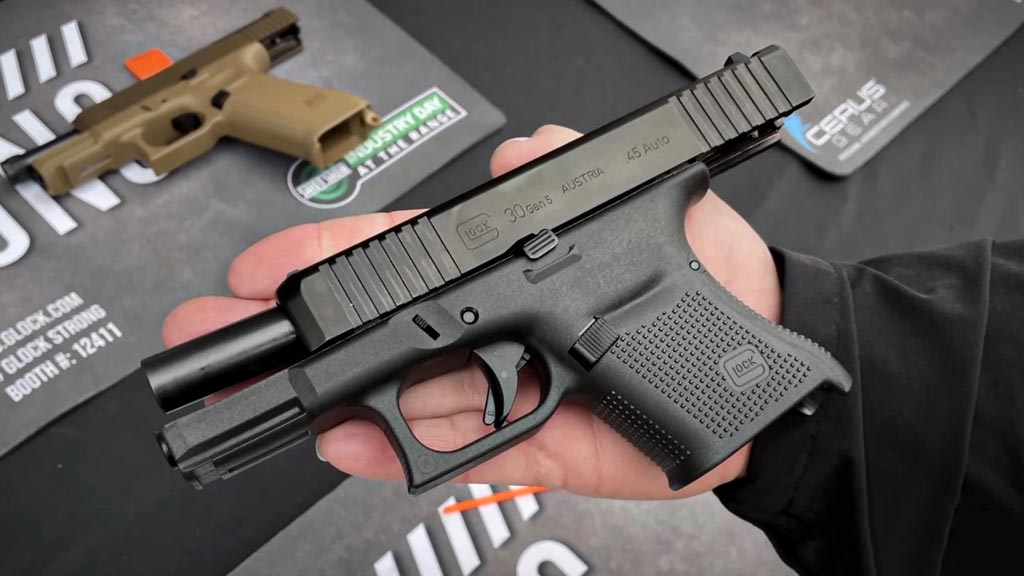
Familiarize yourself with Massachusetts firearm laws, including licensing requirements, transportation regulations, and restrictions on magazine capacity. Knowing the laws will help you avoid violations and potential legal issues.
Obtain Necessary Licenses or Permits
If you plan to possess firearms in Massachusetts, ensure you have the appropriate Firearms Identification (FID) Card or License to Carry (LTC) permit.
If you’re just passing through and don’t intend to possess firearms within the state, make sure your guns are stored and transported in compliance with Massachusetts laws for non-residents.
Secure Firearms During Transportation
Firearms must be unloaded and stored in a locked container or equipped with a tamper-resistant mechanical lock or safety device during transportation. Additionally, they store ammunition separately from firearms in a secure manner.
Check Magazine Capacity
Ensure that any magazines accompanying your firearms comply with Massachusetts law, which prohibits large capacity feeding devices unless they were lawfully possessed before September 13, 1994, and are registered with the state.
Plan Your Route Carefully
When traveling through Massachusetts with firearms, plan your route to minimize the time spent within the state if possible.
Research alternative routes or avoid areas where firearms possession might be restricted, such as school zones.
Be Prepared for Law Enforcement Encounters
If you encounter law enforcement officers while transporting firearms through Massachusetts, remain calm, cooperative, and transparent.
Communicate that you are lawfully transporting firearms in compliance with applicable laws and regulations.
Know Your Rights
Familiarize yourself with your rights as a firearm owner, both under Massachusetts law and federal law.
Understanding your rights can help you effectively assert them, if necessary, during interactions with law enforcement or other authorities.
Keep Documentation Handy
Carry relevant documents, such as your FID Card or LTC permit, and any receipts or paperwork for your firearms. Having these documents readily available can facilitate smooth and efficient verification if needed.
Essential Documents Needed for Transportation of Firearms Through Massachusetts
When transporting firearms through Massachusetts, it’s essential to have certain documents readily available to ensure compliance with state laws and regulations. Here are the vital documents you should have:
Firearms Identification (FID) Card or License to Carry (LTC) Permit
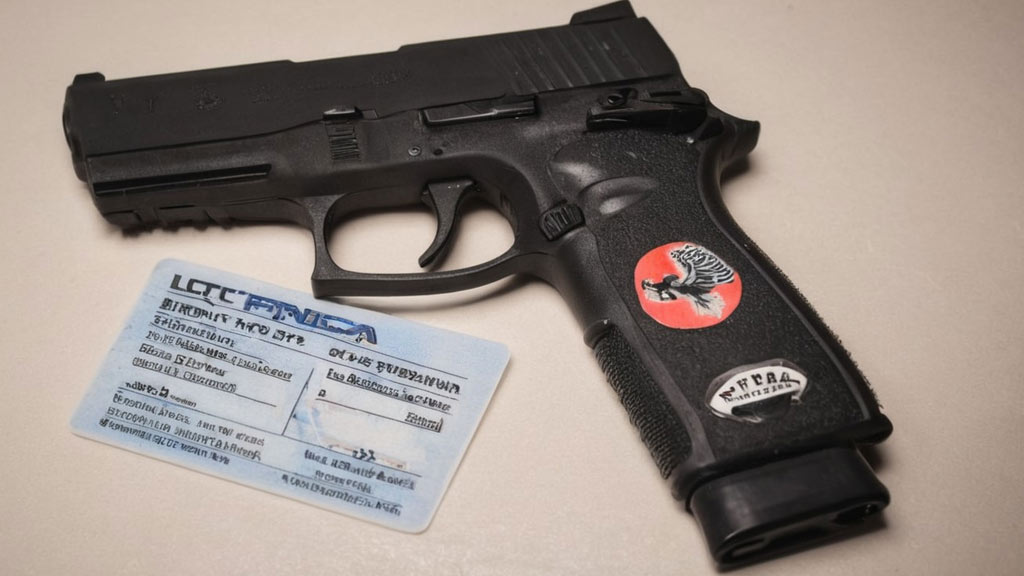
If you intend to possess firearms within Massachusetts, you must have either a valid FID Card or an LTC permit issued by the state. These documents prove that you are legally authorized to possess firearms in Massachusetts.
Firearm Registration Documents (if applicable)
If your firearms are required to be registered under Massachusetts law, ensure that you have the necessary registration documents readily available.
This may include registration certificates or other paperwork demonstrating lawful possession.
Receipts or Proof of Ownership
Carrying receipts or other documentation proving ownership of the firearms being transported is advisable.
This can help verify the legitimacy of your possession if needed, mainly if the firearms are new purchases or recently acquired.
Firearm Transaction Record (FA-10) Form
If you are transporting firearms acquired through a licensed firearms dealer in Massachusetts, you should have a copy of the Firearms Transaction Record (FA-10) form completed during the purchase process.
This form serves as a firearm transaction record and may be requested for verification purposes.
Travel Plans and Itinerary
While not a legal requirement, having a documented travel plan or itinerary that outlines your intended route and destinations can help demonstrate the purpose and legitimacy of your firearm transportation through Massachusetts.
This can also assist in planning your journey to minimize the time spent within the state.
Legal Reference Materials
Carrying copies of relevant Massachusetts firearm laws and regulations and any applicable federal laws can be beneficial for reference purposes.
These documents can help you understand your rights and responsibilities as a firearm owner and assist in addressing any questions or concerns that may arise during transportation.
Having these essential documents readily available while transporting firearms through Massachusetts can help ensure compliance with state laws and regulations, facilitate verification if stopped by law enforcement, and mitigate potential legal issues or misunderstandings.
FAQs
Do I need a permit to travel through Massachusetts with a firearm?
While you don’t need a Massachusetts permit if just passing through, possessing firearms requires a Firearms Identification (FID) Card or a License to Carry (LTC) permit. Ensure adherence to transportation regulations to avoid legal issues.
Can I transport large-capacity magazines through Massachusetts?
Generally, no. Massachusetts prohibits large capacity feeding devices unless owned before September 13, 1994, and registered.
Ensure compliance by using magazines with 10 rounds or less capacity or by adhering to registration requirements.
What should I do if I’m stopped by law enforcement while traveling with a firearm in Massachusetts?
Remain calm and cooperative. Inform officers of your lawful possession and follow their instructions.
Have necessary documents readily available, including your FID Card or LTC permit, firearm registration (if applicable), and receipts or proof of ownership.
Can I transport firearms through Massachusetts on public transportation?
It’s generally prohibited. Public transportation systems often have policies against carrying firearms, even they are legally owned.
Use private vehicles for transportation, ensuring compliance with all Massachusetts firearm laws and regulations.
Wrapping Up
Traveling through Massachusetts with a firearm requires careful adherence to the state’s stringent firearm laws.
Travelers must be well-informed and prepared, from possessing the appropriate licenses to ensuring proper storage and compliance with magazine restrictions.
It’s crucial to prioritize safety, legal compliance, and cooperation with law enforcement to navigate the journey smoothly and responsibly. Thank you for being so supportive.
Jaclyn Lowe